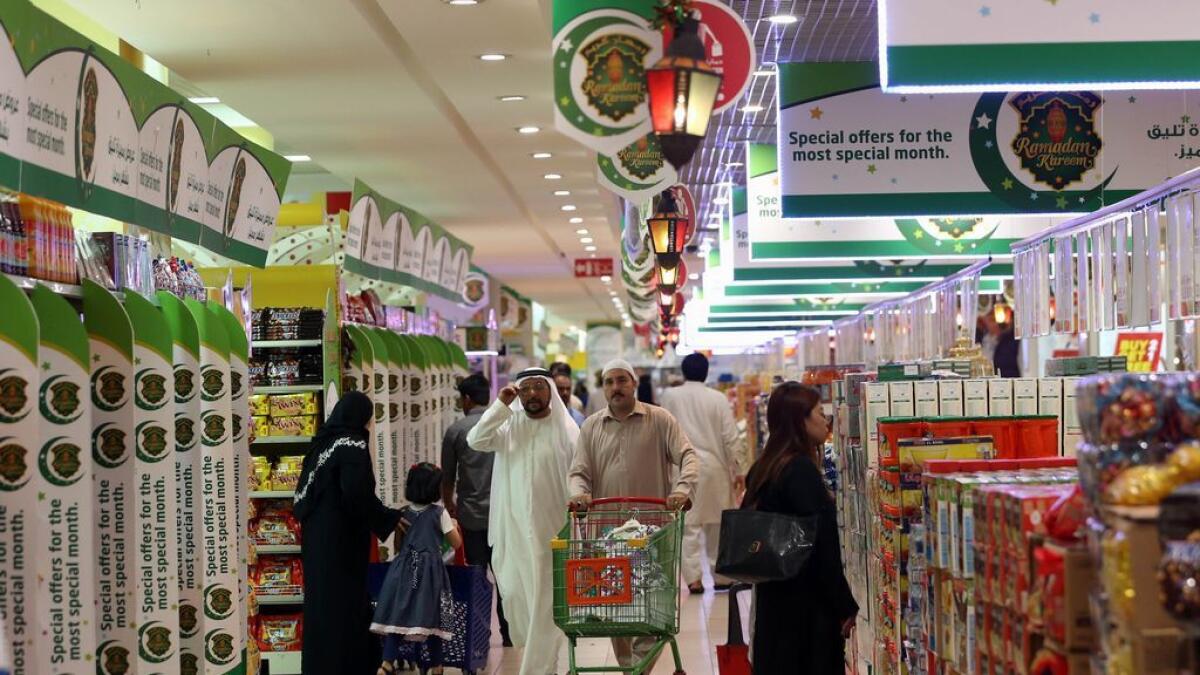Nadal had not played an ATP Tour match since January but dispatched Flavio Cobolli 6-2, 6-3 in one hour and 25 minutes
Now is the time for retail to shine in Saudi Arabia

dubai - The kingdom's retail sector is in the frontline of the 2030 Vision, may create one million new jobs
The GCC is a prime target, offering both buoyant consumer spending and a young, acquisitive population. According to property consultancy CBRE, more than 50 per cent of global retailers have a presence in the GCC. Comparatively untapped, however, is Saudi Arabia. Despite housing the GCC's largest population and economy, the kingdom's retail industry remains significantly underserved. For multinationals seeking fresh growth opportunities in emerging markets, Saudi Arabia is a lucrative prospect.
Saudi Arabia is both the GCC's wealthiest economy and the Middle East's largest retail market. The kingdom's retail sector is in the frontline of the 2030 Vision, an economic diversification plan of unprecedented scale that aims to wean the kingdom away from its dependence on oil. Under the National Transformation Programme 2020, approved on June 6 2016, retail is determined to create one million new jobs.
About one in every six people working in the kingdom, more than 1.5 million workers, is already employed in the retail sector. In response to government initiatives to encourage Saudisation, the number of Saudi nationals employed by the sector stood at 300,000 in 2014, double the number in 2010. The number of Saudi women working in retail has grown rapidly, from just 10,000 in 2010 to 120,000 in 2014, a 12-fold increase.
As a result of these developments, Saudis now make up almost one in five workers in the sector. The National Transformation Programme, or NTP, is expected to encourage a bigger role for retailers to train and employ Saudi citizens in the retail sector, which on a wider scale promises to play a critical role throughout the economy.
A critical catalyst for change is the recent move to lift restrictions on foreign investors and allow them to own 100 per cent of retail and wholesale businesses. The policy, which is in line with Vision 2030, is widely expected to attract a fresh wave of investment against a backdrop of rising demand for modern retail in line with international standards. Considering that much of the retail is still dominated by traditional marketplaces or souks and corner shops, greater foreign investment into organised retail presents an unrivalled opportunity to edge out small traders and seize market share.
This balance is shifting, aided by a surge in mall building activity by Arabian Centres, which will deliver upwards of one million square metres of prime retail space by 2020, with 11 planned shopping centres to its existing portfolio of 18 malls across the kingdom. Arabian Centres' planned malls range in size from 45,000sqm to 165,000sqm, with launches spanning from big cities such as Riyadh and Jeddah to secondary cities to the likes of Taif and Jubail, a reflection of the demand in small, urban districts for prime retail property.
Further underpinning the retail sector's appeal is its demographics. Saudi Arabia plays host to a vast, young population, with a propensity to spend. The median age in the kingdom is 29, while more than 66 per cent of residents are between 15 and 59 years of age. Riyadh, the kingdom's most populous city, is projected to grow to over seven million by 2030 and Jeddah, the second biggest city, is set to grow to nearly 5 million. By comparison, this is bigger than the population of well-established cities such as Dubai or Singapore.
With the young population being better-educated, well-travelled, media and tech-savvy, they are now open to embracing new brands, new consumption habits and new lifestyles - particularly appealing to retailers. The result is one of the world's youngest and fastest-growing consumer bases.
It is evident that the demand for modern retail space is phenomenal, and retailers are unlocking further opportunities for growth in this vibrant market. The kingdom is on the cusp of a retail explosion similar to that seen in Dubai in 2000, but taking place over a significantly larger canvas.
The kingdom's retail sector, that is only a fraction of that in the US on a per capita basis, expanded at 12 per cent per annum, performing strongly at 8 per cent constant value CAGR between 2010 and 2015.
This has not gone unnoticed by multinationals. Numerous retailers have identified Saudi Arabia as a leading growth market, reporting double-digit sales growth. Many are seeking to capitalise on this upswing by pushing into new cities, and widening their network of stores.
It is Arabian Centres' position that the coming years will increasingly see a shift to organised retail, bolstered by a strong pipeline of mall construction that spans both primary cities and smaller districts. For brands able to grow their footprint in the Middle East's largest retail market, the potential rewards are vast. Now is the time to invest in this expansion, and gain share in arguably one of the highest-spending, fastest-growing consumer economies in the world today.
The writer is the CEO of Arabian Centres, a mall operator with a portfolio of 18 shopping malls in Saudi Arabia. Views expressed are his own and do not reflect the newspaper's policy.
More news from
'Jeanne du Barry' is a historical drama film written, directed, and produced by Maiwenn, also starring herself and Depp in the leading roles
Katy's top unexpectedly broke, prompting her to seek cover behind a nearby table
The Mumbai concert that took place on Saturday was a star-studded affair
Muezzins had previously used their azans to stress the stay-home message during the peak of Covid-19
The actor will be seen sharing screen space with Prabhas, and Mohanlal
The video falsely implicates the actor endorsing a political party
The service, authentic flavours and the ambience make this this dining gem worth visiting











